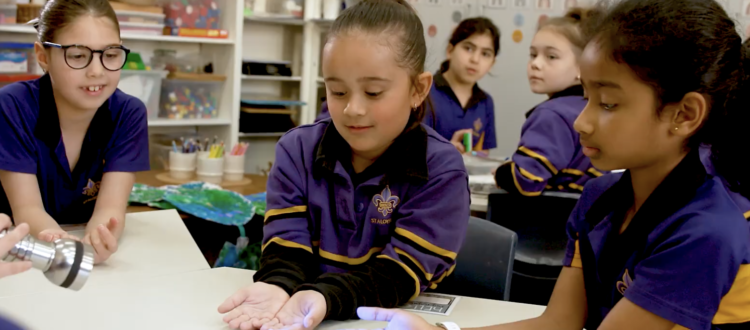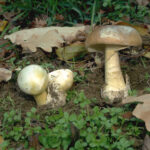
As children start to go back to school, the Food Safety Information Council is asking parents to make sure their children know how to wash their hands correctly.
Cathy Moir, Council Chair, said that an international survey published by the Global Hygiene Council (GHC) in 2020 found that 42%of children between the ages of 5 and 10 did not know how to properly wash their hands while at school. This survey assessed primary school students from across seven countries, including the UK, Indonesia, China, Australia, Saudi Arabia, India and South Africa.
‘Also, our own research in August 2021 found a 15% decrease in the number of times Australians over 18 washed or sanitised their hands a day, on average, since the same time the previous year so this is also a timely reminder for adults to remember to wash their hands frequently,’ Ms Moir said.
‘To reduce their risk of food poisoning (and COVID-19 infection) children should always wash their hands with soap and running water for 20 seconds and thoroughly dry them (or use hand sanitiser if hand washing facilities aren’t available) on these occasions:
- before handling, preparing and eating food
- after using the toilet
- after blowing their nose
- after touching a pet
- after returning home.
‘To remind Australia of the importance of good hand hygiene, the Food Safety Information Council has made an education package available including videos and posters for both adults and children that give 4 simple tips for washing hands correctly. We also strongly encourage schools to take the Glitterbug challenge to see how well children wash their hands with a fun scientific experiment using a UV torch. The package can be downloaded from our website here and we encourage people to watch the video and to put up the posters at home, in their workplace, or at school,’ Ms Moir concluded.
This year we have partnered with our supporter Provisual to get handwashing and other food safety information into school canteens and tuckshops and we also encourage all schools to order Provisual’s free canteen posters from here.
In addition, here are 6 tips for parents about how to prepare a safe lunch for their children:
- When buying lunchboxes or insulated lunch bags, choose those that have room for a frozen water bottle or freezer block and are easy to clean and dry.
- Always wash and dry your hands thoroughly before preparing food, and wash all fruits and vegetables thoroughly.
- Always use clean utensils and a clean chopping board when preparing school lunches.
- Make sure ready-to-eat lunchbox foods are always kept separated from raw foods in the refrigerator, particularly raw meats, chicken, eggs, and seafood.
- Keep the lunch cool in the fridge until you are ready to leave home, then put an ice brick or frozen drink in the lunchbox or cooler bag to keep it cold until lunchtime.
- During hot weather you may want to consider providing safer lunchbox alternatives that can be safely stored at room temperature, such as hard or processed cheese, vegetables or tuna in a can.
- Discard any higher risk foods such as sushi, salads, meat, cut fruits, poultry, rice or eggs if your child brings them home uneaten.
The Food Safety Information Council would like to thank their members OnSolution and Accord Australasia for their support for this campaign through charitable donations. We’d also like to thank the students and staff at St Aloysius College in Adelaide for their assistance in making the Glitterbug video.
Media contacts:
Lydia Buchtmann, Food Safety Information Council, 0407 626 688 or info@foodsafety.asn.au
Craig Brock, Accord, 0422 363 646
Accord Australasia is the peak national industry association representing manufacturers and suppliers of hygiene, personal care and specialty products, their raw materials suppliers and service providers. Their industry’s products are used every day across the nation in homes, public places, commercial premises, institutions, industry and farms. https://accord.asn.au/
Research paper: Global Handwashing Partnership 2020, Almost half of children are not always using soap when washing hands at school, new global survey finds



